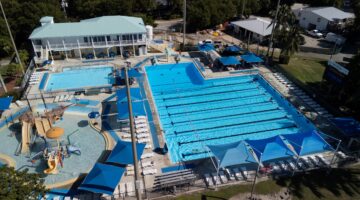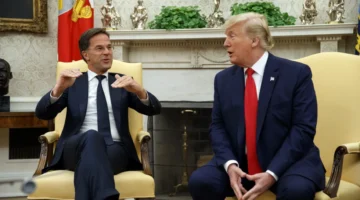A guide to Florida’s primary election
BRENDAN FARRINGTON, AP Political Writer
TALLAHASSEE, Fla. (AP) — Florida voters will go to the polls Tuesday and select the nominees for U.S. Senate, decide whether to amend the state constitution to give a property tax break to promote solar energy and have a say in who should represent them in the U.S. House. Here’s a look at the races and issues facing Florida on Election Day.
___
REPUBLICAN SENATE PRIMARY
Marco Rubio’s last minute decision to run for re-election almost, but not quite, cleared the field in what was a crowded Republican primary to replace him. Rubio said while running for president that he wouldn’t seek a second Senate term. He repeated that claim when he dropped out of the race after badly losing the Florida presidential primary to Donald Trump. Then he changed his mind, causing Lt. Gov. Carlos Lopez Cantera, U.S. Reps. Ron DeSantis and David Jolly and businessman Todd Wilcox to drop out of the race. But homebuilder Carlos Beruff stayed in and has spent about $8 million dollars of his own money on his first run for office. He has repeatedly criticized Rubio for missing votes while running for president and failing to enthusiastically back Trump for president, but was still badly trailing Rubio in the polls as the primary approached. Rubio has campaigned as if he’s already won the nomination, refusing to debate Beruff and focusing more on his Democratic opponents.
___
DEMOCRATIC SENATE PRIMARY
U.S. Reps. Patrick Murphy and Alan Grayson are the two leading candidates to take on Rubio and have led strikingly different campaigns. Murphy wrapped up major endorsements early in the campaign and is the establishment favorite to try to win back Sen. Marco Rubio’s seat as Democrats try to regain a Senate majority. Murphy has excelled at fundraising and is backed by President Barack Obama, Vice President Joe Biden and Senate Minority Leader Harry Reid. Grayson has a reputation for being a fiery, outspoken liberal who isn’t afraid to break beyond political norms. Most of fundraising has been through small donations. Both candidates have had issues during the race. Grayson has been dogged by ethics allegations over an offshore hedge fund he managed and a claim by the mother of his children that he abused her over two decades. He has said he’s done nothing wrong. Murphy has been criticized for embellishing his resume and for relying on $1.5 million in contributions his father gave to super PACs supporting his campaign.
___
DEBBIE WASSERMAN SCHULTZ
U.S. Rep. Debbie Wasserman Schultz is facing her first primary since winning office in 2004. She has been one of the Democratic Party’s top leaders in Congress and served as Democratic National Committee chairwoman at President Barack Obama’s request for nearly five years, resigning in July after the DNC’s emails were hacked. The leaked emails showed staffers privately were supporting Hillary Clinton over Sen. Bernie Sanders in the Democratic presidential primary. Her opponent is Tim Canova, a Nova Southeastern University law professor who says Wasserman Schultz has lost her liberal values by sucking up to big donors and Wall Street. Sanders endorsed Canova, leading to a flood of donations from outside Florida in what appears to be an effort to take revenge at the party establishment for the way the presidential primary was handled. Canova has raised about $3.3 million — more than Wasserman Schultz and an astounding amount for a first time candidate running against someone who has served the area for more than 24 years in the state Legislature and Congress.
___
U.S. HOUSE
Florida’s congressional maps were ripped up and redrawn last year after the state Legislature lost a court battle. The state Supreme Court ruled that lawmakers violated a voter-approved constitutional amendment requiring districts to be drawn in a compact manner that doesn’t favor incumbents or political parties. That’s contributed to one of the most active election years for congressional races. At least seven of Florida’s 27 U.S. House members will be newly elected due to members retiring or seeking other political offices. Many of the state’s congressional primaries almost assure the victor will be elected in November because of the political makeup of the district. Republican primaries to replace retiring GOP Congressmen Jeff Miller, Ander Crenshaw, Curt Clawson and Richard Nugent will likely decide who is sent to Washington in November. The same goes for the Republican primary to replace Democratic U.S. Rep. Gwen Graham, who is exploring a run for governor after her district was redrawn in a way that favors the GOP. Democratic primaries to replace U.S. Reps. Alan Grayson and Patrick Murphy, who are running for Senate, will also likely choose the next members of Congress in those districts.
___
SOLAR ENERGY
Voters will decide on a ballot measure to provide property tax breaks for people who install solar panels on their homes. Amendment 4 was placed on the ballot by a unanimous vote in both chambers of the Legislature. The increased value to a home from the installation of solar panels or other renewable energy devices can’t be considered when assessing homes to determine property taxes. Environmentalists and business interests support the measure, which must receive 60 percent approval to pass.
___
FLORIDA VOTERS
Florida has nearly 12.4 million voters, including more than 4.4 million Republicans, 4.7 million Democrats and 2.9 million voters who aren’t registered with any party. Voting by mail began more than a month before the primary and in-person early voting began up to 15 days before the primary. More than 2.3 million requested vote-by-mail ballots and nearly 500,000 had cast ballots at early voting sites by Saturday.
[livemarket market_name="KONK Life LiveMarket" limit=3 category=“” show_signup=0 show_more=0]










No Comment